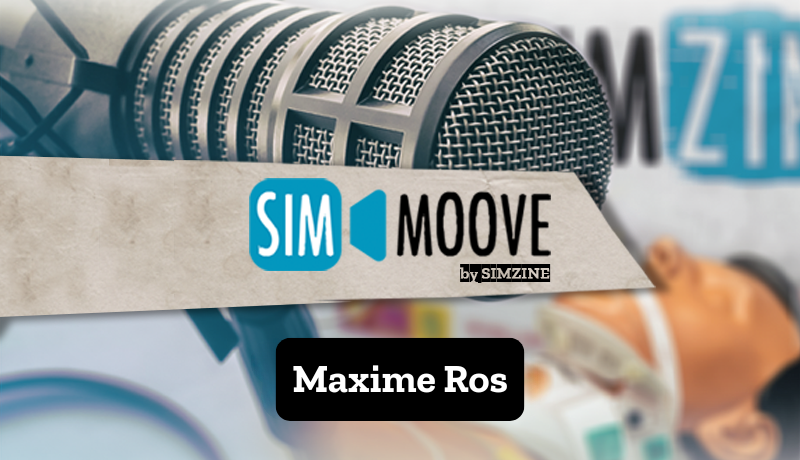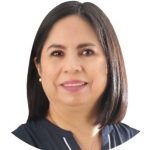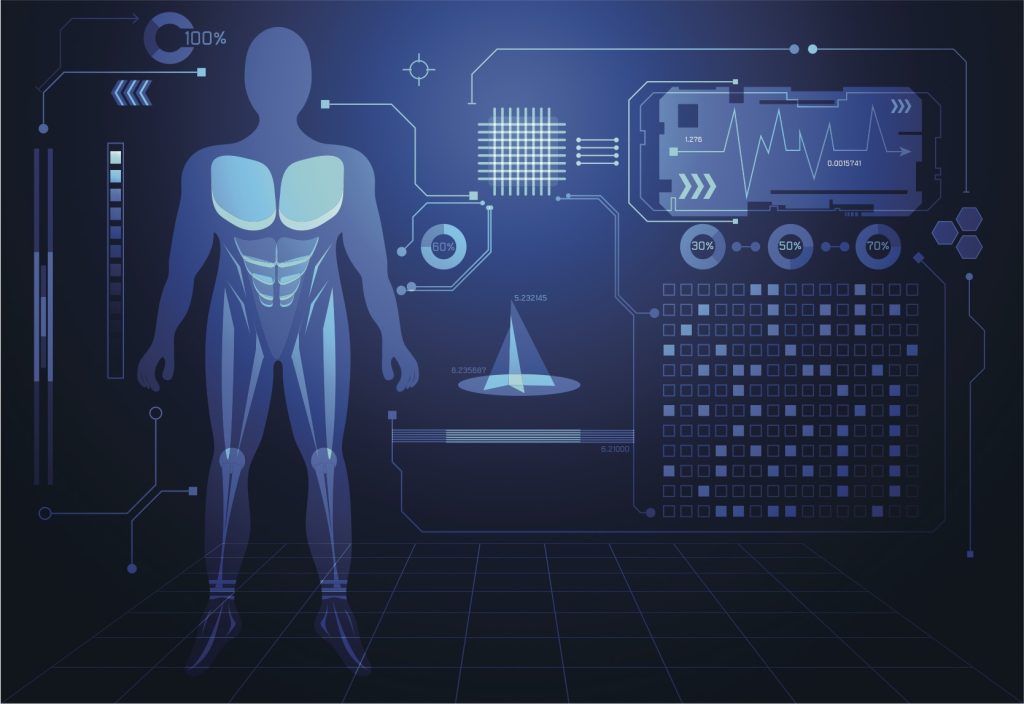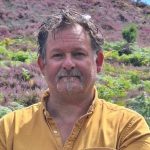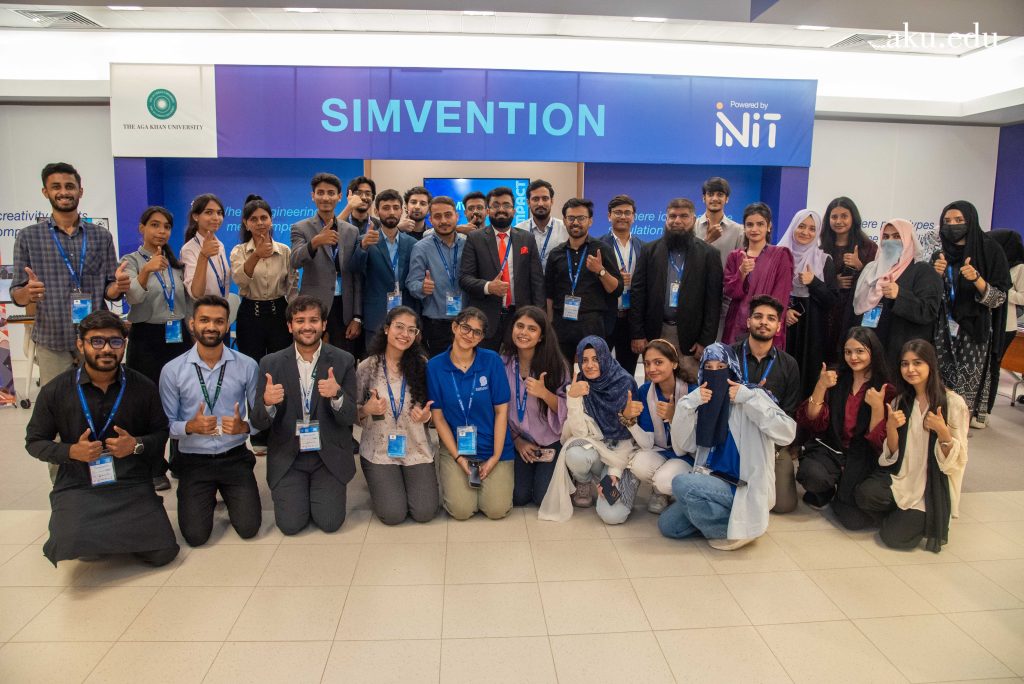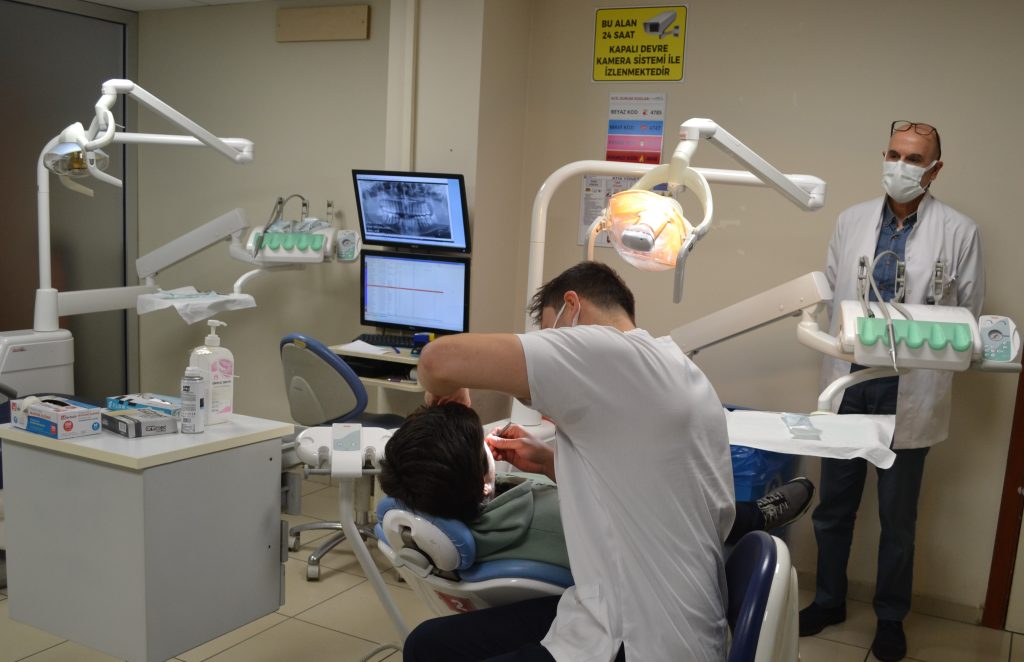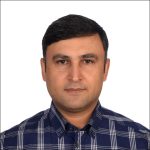In this new installment of our SIM Face section, we dive into the story of Ignacio Del Moral, or as he prefers to be called, Nacho. Energy, passion and an unstoppable desire to improve the world around him are just some of the traits that define this leader in the field of clinical simulation. What drives him? What sacrifices has he made along the way? Nacho shares his inspiring vision for the future of medical training and gives us a glimpse into the person behind the professional. Read on to get to know him better!

Ignacio del Moral
Ignacio (Nacho) del Moral, MD, PhD. Consultant Anesthesiologist. Hospital Universitario Marqués de Valdecilla, Santander, Spain. Former CEO Hospital virtual Valdecilla. Director, Spanish programs Institute for Medical Simulation-Center for Medical Simulation, Boston, USA
Hi Ignacio, thank you so much for taking the time to spend time with our readers. We like to start with a simple question to break the ice: How would you describe, in your own words, who Ignacio Del Moral is?
Hello and thank you for your invitation! I prefer to be called Nacho… and I consider myself a person with energy and enthusiasm to try to improve the world around me, bringing people together, building bridges and moving forward projects that contribute to making people and organisations better.
Clinical simulation is revolutionising the way healthcare professionals are trained and how clinical risk is contained. What was the moment in your career when you realised that this was the future?
It was a professional experience early in my career as an anaesthesiologist that I was fortunate enough to reflect on in an article in the journal Simulation in Healthcare (SiH) in February 2020 entitled ‘My Simulation Journey: making the impossible possible’. It was a complex clinical situation that happened to me in the operating theatre with a patient who was impossible to ventilate and impossible to intubate. At that precise moment I realised that we had to transform the way clinical teams train and healthcare professionals learn, this was in August 1998, 26 years ago now. Since then I have lived with the motivation to lead projects to make this vision a reality.
What personal sacrifices have you had to make to get to where you are today? Is there anything you would have done differently?
Logically, when someone sets a goal to transform the present and break the status quo, there is always a lot of sacrifice behind it, and all that sacrifice is worth it for the greater good of patient safety and the development of healthcare professionals. My family has made a huge sacrifice because of my long travels, working hours and worries. I have seven children and we decided to go to Boston for a year of medical simulation training, at first they didn’t understand, now they want to come back! Regarding if you would change anything, I would have done something different, maybe in 2011, when I left my clinical work to dedicate myself 100% to start up the virtual Valdecilla Hospital: looking back, I think I would have liked to continue the relationship with the patient, and at that time, the situation needed it.

Valdecilla Virtual Hospital is one of the best known simulation centres in Spain and internationally. What has been your contribution?
From the Government of Cantabria, in 2009, we had the vision of setting up a high-performance training centre, something like the ones athletes have, with the hope of contributing to the growth of clinical teams and professionals. There was nothing and I was privileged to be proposed to start this initiative. I was its first director and my role has been to bring people together, to create a vision and strategic thinking to make the HvV what it is today. I think it is the result of the work of many people from Valdecilla Hospital and the Cantabrian Health Service, as well as the support of an international network (Center for Medical Simulation, Boston; MedStar, Washington; and Vanderbilt Center for Research and Innovation in Systems Safety) who have put above them something bigger: that no patient suffers harm during healthcare and that all professionals have the tools to work as a team and support their colleagues.
As our readers know, in this column we highlight professionals who have played – and continue to play – a key role in the advancement of simulation in healthcare. Why do you think Ignacio Del Moral deserves to be in this section?
Well, you invited me to be here – and I thank you for it – so maybe it would be the magazine that would have to answer (smiles). And if I had to comment on something it would be that back in 1998, after a meeting with David Gaba at Stanford during a fellowship, I envisioned that this methodology -clinical simulation- would have to be implemented in all healthcare organisations, and since then I have worked around the world to make this vision a reality.
In your opinion, how far do you think simulation can go and do you think that one day it will be able to completely replace the real clinical experiences of students, a bit like pilots before a real flight?
I think that clinical simulation will increasingly take on a greater role in the training process of professionals, both at university and during the residency period and the ongoing development of teams; this means that when students have their first encounter with the patient, they will be much better prepared, have greater mental clarity, and the decisions they make will be more rigorous.
I don’t think that simulation is going to replace it completely, and I do think – and I think it is very necessary – that when the professional is faced with a situation with a patient, they can think: ‘I have experienced this before in a safety context and I have discussed how we have to work’, the greatest benefit will be for the patient, the professional and the organisation!
You had a training experience at Harvard Medical School. Is simulation abroad so different from simulation in Spain or Europe?
I think that in the United States, simulation is more established, and somehow because of its model of university organisation and healthcare service provision, the dedication, professionalism and multidisciplinary work of the simulation centres, I have the feeling that it is more established than in Europe, Spain and Latin America.
Simulation is sometimes seen as a ‘doctor’s game’ for some traditional professionals. Have you encountered this resistance? How do you fight it?
All resistance is normal, it has, deep down, a meaning, and that is that ‘so far what I have done has worked for me’, and the uncertainty of the future can be frightening; it is a very human reasoning. Faced with this, I believe that while normalising it, we have to work rigorously to inspire that change, to have a coherent narrative that motivates us to implement any change in a reasoned and professional manner. In my experience, following a rigorous process, many professionals join the change; and those who don’t, they have every right to, and they’re not going to hold back either. I think the way to combat it is through strategic thinking and managing change in a professional manner.

What still keeps you awake at night today, professionally speaking?
I like this question, because it makes me reflect… I will take some time to answer. After a while of reflection, I realised that there is nothing that keeps me awake at night professionally speaking, haha, and I do have many illusions ahead of me. To tell you some of them, one would be to bring the reality of healthcare organisations and clinical simulation-based activity closer and closer together, another would be the support of the education teams to professionals so that they can carry out their work supported by the teams and strengthening professional relationships by implementing habits such as reflective practice, clinical debriefing and learning conversations in the M&M rounds.
Given all your experience, what is still missing in the process of professionalisation of simulation?
In this process of implementing simulation, I think that professionalisation is indeed one of the keys, and for this we need, on the one hand, data, data that provide the value of implementing a tool for change, such as simulation, and on the other hand, professionalisation also means being part of all the steering committees in hospitals and university centres, and for this you need dedicated, experience
We usually end the interview with a somewhat cheeky question. If you had not been a doctor or worked in clinical simulation, what do you think you would have done with your life?
I love nature, it’s the place where I find the energy to go on with enthusiasm every morning, and I also feel very grateful for the family I have, so combining both things, I think I would set up a farm in a paradisiacal place, for example Cantabria!!!
Thank you very much for this nice chat.
READ ALSO































